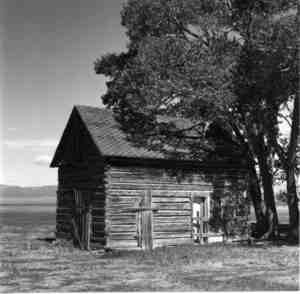Letter from Tim Kregel
English Usage -March 2006 -Colorado Central Magazine
Editors:
In the February edition, Roger Williams of Boulder asked a couple of questions about my piece (“The Winter Crossing of Chalk Creek Pass”) in the January edition. I have some answers:
1) I got the “Schnee” spelling right in the article, but Santa’s elves truncated it a bit on the credits page. However, the “Shepard” misspelling was all mine. Not the best excuse, but it spell checks on both my work and home computers. Should have gone with “Schäferhund.”
The photo’s 30 years old, so it’s not Buster unless he’s a really old pup!
2) “Ridge runner” was a colloquialism appropriated from the Monarch Pass area, and described the snow clouds that frequently hung over the peaks only above about 10,000 feet (most years). Made for great skiing at the higher elevations and let you get away from the deepest snow with just a short trip to lower terrain.
Tim Kregel
Germany
Dear Tim, Peter, Others:
Tim, how kind of you to take responsibility for one of our errors, but in the end, the buck stops here –where the articles are supposed to be converted into print, copy-read, and proofed.
Even though we expect writers to check names, facts, phone numbers, and details, we routinely re-check them, run additional spell checks, and re-read everything –and still make dozens of mistakes every month.
But we have been extremely lucky, and know it, because Colorado Central’s writers routinely submit some of the cleanest copy we’ve ever encountered (and for that we are exceedingly grateful).
To be honest,though, we are not in the big leagues. We have a management staff of two, an editorial staff of two, a production staff of two, a distribution staff of two, an advertising staff of one, a website staff of one, a bookkeeping staff of one, and a copy-editing staff of one –and altogether that makes a total staff of two part-timers (since we both have other jobs, too).
Whenever Ed and I can talk, pay, bribe, brow-beat or impress someone into proof-reading between 10 p.m. on Sunday when we ordinarily finish production and 8 a.m. on Monday when we go to press, we do (which may be why both our kids now live out-of-state).
But I’m not trying to make excuses, here. In fact, I think high standards for grammar, spelling, syntax, punctuation, phone numbers, stats, facts, style, and content are all imperative to any publication. And we have them. We just never quite seem able to meet them.
No one, however, is more aware than I am that every single month I miss a lot more than just a few misplaced apostrophes.
There are reasons. Six months ago, for example, we decided to update our software –a necessity. But it’s been a slow and tedious process to adjust our conversion programs –so that question marks, dashes and colons don’t get turned into codes; so that quote marks don’t get turned around backwards; so that sentences don’t get divided into separate paragraphs at random; and paragraphs don’t get deleted entirely –which are all things that have happened recently with frustrating frequency.
Lately, we’ve received perfectly good copy and added ten, fifteen, and sometimes even twenty errors a page, and then had to weed out all the excess mistakes. But for small, home-grown media (be they newspapers, magazines, radio shows, or live productions) there are always challenges. I remember the day my older daughter was born; my roommate got flowers and I got newspaper galleys to proof by the next afternoon.
I’d like to make it clear, however, that our writers are exceptional. A large number of them are professionals who write for other publications for far more money than we could ever pay.
And all of them contribute their talents to Colorado Central for far less than they are worth.
We live in a country where tiny, local theater companies have to compete with multi-million dollar Hollywood productions, where minuscule publishing houses have to vie for attention with books from international conglomerates, where writers who want to cover local topics generally only make two to ten cents a word, which barely covers their expenses –and sometimes they just donate their services outright.
For that we thank them –and apologize because we dearly wish we could embellish their work with the slick paper, vivid four-color reproduction, art staff, and production qualities their work deserves.
Martha


